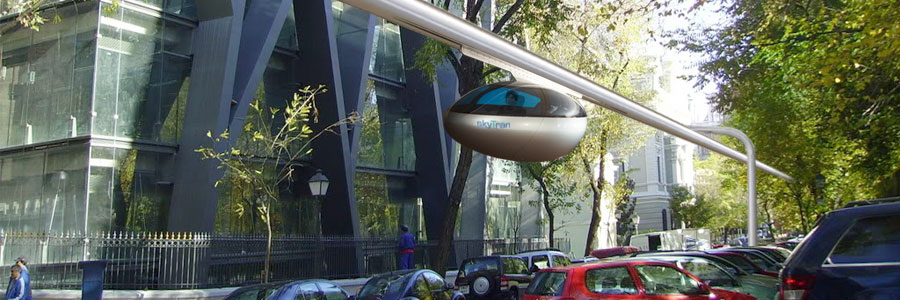In the beginning, transportation was crap. In prehistory, walking from one place to another was hard and carried with it the very real risk that you might be eaten. Most of the major advances in human history are major because they made transportation less crappy: domesticated animals, the city, the wheel, the sail, the steam engine, the airplane, etc. But even as we fly through the clouds at 400 miles per hour, our thoughts often lie on how crappy air travel still is. I imagine that matter transporters will probably come with some blistering headache side effect that makes us hate instantly appearing at our destination just as much as we hate getting there now.
As transportation students, we probably learned that the appropriate academic phrasing for this concept is that transportation is a derived demand. In theory, people don’t make trips that don’t bring them some sort of benefit. There is a corollary to this idea, however, and that is that any trip worth taking must have some sort of cost, or else people would just be traveling all of the time (and no one gets a free lunch).
This may be personally insulting to many of my friends in ITE@GT, but it’s time to face it. Transit is crappy. Buses are slow, loud, hot and stuffy, and filled with people that may or may not creep you out. Chances are that neither your origin nor your destination is all that close to the bus line. And if you miss the bus, well, I hope you brought something to do because you could be there for a while. Trains may be better on some dimensions, but not all that many.
Of course, driving is also crappy. Owning and maintaining a vehicle is very expensive. There’s also an inverse relationship between how much you want to be somewhere and how easy it will be to find a parking space. And from a social optimality perspective, traffic congestion and smog are good for no one.

Enter skyTran, a “new” idea from Silicon Valley entrepreneurs1 and scientists at NASA, slated for prototype installation in Tel Aviv. The system will be built around individual pods suspended from a magnetically-levitated and -propelled track. People will summon a pod in some manner, and it will take them quickly and directly to their destination, obviating the need for parking or vehicle ownership. Riders will also not need to associate with other transit users, eliminating the inefficient dwell times or awkward social situations created by public transit. skyTran’s promoters market the system as “the physical internet.”2
I referred to skyTran as “new” intentionally, because this is indeed not a new idea in any way. It is simply a more slick presentation of a mode called Personal Rapid Transit (PRT), and one with a long history of implementation failure (see: Wikipedia). It is true that invention is mostly perspiration, but after so many false starts, you would think PRT as a serious idea would have died by now. But no, it keeps coming back. It is in fact undead: the zombie of transportation modes.
It does not take a graduate degree in transportation systems engineering to see the problem in the artist’s representation above. If all of the cars in the picture were replaced by pods, the problems of congestion would not be solved. Indeed, there would be a fairly long queue of pods lined up along the track, waiting in traffic to deposit their passengers.
Perhaps some people would wish to continue driving their own vehicles. This would not be surprising given that car owners use their vehicles to signal social status or pursue other interests. Plus, cars are good at carrying personal cargo in a way that these pods would not be. So perhaps PRT systems create another layer independent of the vehicle system. But then we still haven’t solved the problem of a crappy urban transportation system. I share James Howard Kunstler’s opinion on this,
If we’re going to replace the car why do it with something that’s not only like the car, but not really as good as the car? It just seems crazy.
- Yes, there is definitely a theme developing. ↩
- I’m not entirely sure what this means. ↩


1 thought on “Zombies”